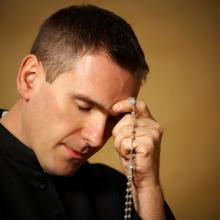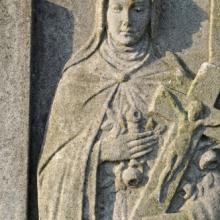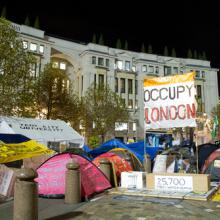church of england
CANTERBURY, England — The Church of England on Jan. 4 confirmed that it has dropped its prohibition on gay clergy in civil partnerships becoming bishops — but only if they agree to remain celibate.
Speaking on behalf of the Church’s House of Bishops, Bishop of Norwich Graham Jones said in a statement: “The House of Bishops has confirmed that clergy in civil partnerships, and living in accordance with the teaching of the Church on human sexuality, can be considered as candidates for the episcopate. There had been a moratorium on such candidates for the past year and a half while the working party completed its task.”
Jones added that the bishops agreed it would be “unjust” to exclude gay men from becoming bishops if they were otherwise “seeking to live fully in conformity with the Church’s teaching on sexual ethics or other areas of personal life and discipline.”
CANTERBURY, England — The British government unveiled a proposal on Tuesday that excludes the Church of England and the Church in Wales from planned legislation to allow same-sex couples to marry in churches.
Culture Secretary Maria Miller told Parliament the new plan would allow gay and lesbian couples to marry in some churches, synagogues, temples, and mosques, but definitely not in the established church, where both the outgoing and incoming archbishops of Canterbury insist that marriage remain between a man and a woman.
"We will write on the face of the bill a declaration that no religious organization, or individual minister, can be forced to marry same-sex couples or to permit this to happen on their premises," Miller told the House of Commons.
Religious groups, including Quakers, Unitarians, and some liberal Jewish groups, welcomed the news because they favor same-sex marriage. The Church of England, the Church in Wales, the Roman Catholic Church, most Muslims, and Orthodox Jews oppose the move.
CANTERBURY, England — The Church of England plans to rush through legislation to consecrate women bishops after last week’s surprising defeat at the church's General Synod in London.
The church's Archbishops’ Council ended two days of closed-door meetings on Wednesday (Nov. 28), and said a plan to allow women bishops needs to be "restarted" when General Synod reconvenes in July. Church leaders originally said the issue could not be reopened until 2015.
The 19-member council acts as the standing committee of the three-tier General Synod made up of bishops, clergy and laity.
The Church of England has sold its $3 million worth of shares in Rupert Murdoch's News Corp. due to concerns about the company's ethics.
Eight News Corp. journalists have been charged by British authorities in connection with a phone-hacking scandal. They are accused of hacking telephone lines belonging to celebrities, politicians, law enforcement officials and crime victims; bribing police officers and paying private investigators for illegally obtained information.
"The Church of England was not satisfied that News Corporation had shown, or is likely in the immediate future to show, a commitment to implement necessary corporate governance reform," the church said in a statement on Tuesday (Aug. 7).
The church also said it was concerned that Murdoch is both chairman and chief executive of News Corp.
In a column Sunday in the U.K.'s Guardian newspaper, Giles Fraser, the former canon chancellor of St. Paul's Cathedral, set a discussion about the Church of England and its stance toward gay marriage within the context of the Eucharist, saying, "The parish church opens up the jollof rice and communal wafers to all comers, shouldn't we do the same with the marriage feast?"
Fraser continued,
The problem with the CofE on the gay issue is not that it doesn't practise what it preaches but that it doesn't preach what it practises. And orthopraxy (what you do) is more properly basic than orthodoxy (what you think). In practice, the CofE has a reasonably good track record of opening up the jollof rice and the communion wafer to all comers – and certainly better than its official pronouncements would lead onlookers to believe. So why is there such a huge gap between the CofE at parish level and the CofE as expressed by official pronouncements? During General Synod this week, the archbishops came under heavy fire from parish clergy for submitting a shockingly negative response to the government's same-sex marriage proposals in the name of the CofE, as if they constituted the CofE's views. They don't. The parish church is typically a more inclusive place than the church's leadership understand. Here there is neither rich nor poor, black nor white, gay nor straight. The archbishops are out of touch. The parish is the centre of gravity of the church.
Read the column in its entirety HERE.
Image: Stained glass window depicting the Last Supper by Antonio V. Oquias/Shutterstock.
A Church of England vicar has been sentenced to 4 1/2 years in prison for conducting hundreds of bogus weddings and illegally pocketing more than 30,000 pounds ($48,000) in fees.
The Rev. Brian Shipsides was convicted and sentenced Tuesday (April 3) for carrying out a "meticulously planned and orchestrated" immigration fraud over a 2 1/2 period at All Saints Church in east London.
Authorities said the vicar conducted the fake marriages of non-Europeans, mostly Nigerians, to European partners to try to obtain immigration rights to stay in Britain.
A proposed "Covenant" aimed at ensuring unity across the worldwide Anglican Communion appears to have failed, leaving the world's third-largest Christian body facing an uncertain and likely fragmented future.
The covenant, born of an idea in 2004 to try to set boundaries in belief and practice for the Communion's 40 members churches, appears dead after a majority of dioceses within the Church of England voted to reject it.
With results still being counted, supporters of the Covenant effectively lost their battle within the Church of England when the Diocese of Lincoln cast the 23rd vote against it last week.
"The covenant is either buried or disabled," said Simon Barrow, co-director of the independent British think tank Ekklesia, in the aftermath of the decision.
"What do think will happen" a longtime Episcopalian asked me in Charlotte, N.C., "now that Archbishop ... er ... "
"Rowan Williams," I said.
" ... yes, Rowan Williams, has decided to retire?"
The question took me aback. I rarely hear Episcopalians talking about the Archbishop of Canterbury, the London-based head of the worldwide Anglican Communion, which includes the Episcopal Church as its U.S. branch.
Many Episcopalians pray for the 61-year-old prelate every Sunday, but as Canterbury has gotten more conservative and more solicitous of arch-conservative Anglican bishops from the Third World, Anglicans in developed nations choose to walk their own progressive path.
Rowan Williams, Archbishop of Canterbury, announced this morning that he is resigning at the end of the year. After more than 20 years as bishop and then archbishop, Williams plans to return to academia at Cambridge University.
LONDON — Police on Tuesday evicted scores of demonstrators from a makeshift tent city they had erected outside historic St. Paul's Cathedral more than four months ago as part of a global protest against capitalism.
After brief skirmishes in the operation that authorities launched before dawn, 20 protesters were arrested but most reacted largely peacefully as they were moved out.
Police dumped an estimated 150 tents and equipment into waiting garbage trucks. By midday, the former campsite was cleared and the last of its occupiers were leaving.
LONDON — The Church of England is spearheading a campaign to install high-tech movement sensors on scores of churches in a bid to stop a rash of lead and copper thieves who have targeted the roofs of religious buildings.
The stolen metals are fetching increasingly higher prices on international markets. The insurance firm Ecclesiastical, which provides coverage for 96 percent of Anglican churches in Britain, reported receiving a record 2,600 claims last year.
The new security campaign, called "Hands Off Our Church Roofs," is aimed initially at installing the alarms at some 100 churches in England, Scotland and Wales. The alarms trigger loud voices announcing that a burglary is in process and that security guards are on their way.
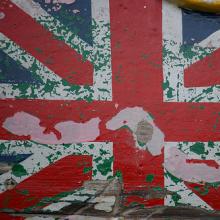
Union Jack mural in disrepair. Image via http://bit.ly/wLwse2.
Gandhi once said that "a nation's greatness is measured by how it treats its most vulnerable." Today, it strikes me that the "Great" in Great Britain should probably be quietly dropped, and replaced with "Abject," "Inadequate" or something equally disparaging.
For that is how the UK is currently treating its most vulnerable — the young, the elderly, the disabled — inadequately, abjectly and without compassion. For the last few weeks, a battle has been raging between the government, the legislature, the Church, organizations, and the general public over a piece of legislation called the Welfare Reform Bill.
The bill is wide ranging in its ‘reforms’, covering a myriad of social security measures – from disability benefits, to welfare offered to the unemployed and their families and children. At a time when austerity and budget cutting is front and center of the government’s agenda, ‘reform’ is a by-word for ‘cutbacks’.
The crux of the legislation is an attempt to distinguish between different categories of "the poor," to weed out the “undeserving” from the “deserving.” Sadly, as can be seen from the uproar that the Bill has caused, this attempt has failed.
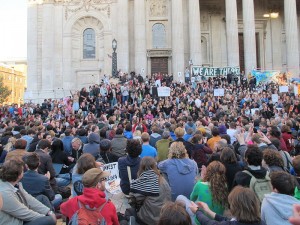
On Sunday (10/30), the Anglican Bishop of London, the Rt. Rev. Dr. Richard Chartres, met with Occupy London protesters who have encamped for several weeks now on the ground of St. Paul's Cathedral in London, in an ongoing attempt to get the demonstrators to leave church grounds.
Chartres wants the Occupiers to vacate cathedral property and stopped short, in an interview with the BBC yesterday, of saying he would oppose their forcible removal. Other British clergy, however, are rallying behind the demonstrators, saying they would physically (and spiritually) surround protesters at St. Paul's with a circle of prayer or "circle of protection."
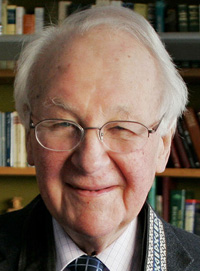 [Editors' note: Rev. John Stott, one of the world's most influential evangelical figures over the past half-century, died this Wednesday at age 90. Rev. Stott served as a contributing editor for Sojourners magazine, when we were known as The Post American, and wrote this article for the November/December, 1973 issue of the magazine. We will always remember Rev. Stott for his profound contributions to our community and the Church.]
[Editors' note: Rev. John Stott, one of the world's most influential evangelical figures over the past half-century, died this Wednesday at age 90. Rev. Stott served as a contributing editor for Sojourners magazine, when we were known as The Post American, and wrote this article for the November/December, 1973 issue of the magazine. We will always remember Rev. Stott for his profound contributions to our community and the Church.]
It seems to be a characteristic of the Anglo-Saxon mind to enjoy inhabiting the "polar regions" of truth. If we could straddle both poles simultaneously, we would exhibit a healthy balance. Instead, we tend to "polarize". We push some of our brothers to one pole, while keeping the other as our own preserve.
What I am thinking of now is not so much questions of theology as questions of temperament, and in particular the tension between the "conservative" and the "radical."

[Read more of this blog conversation in response to the Sojourners magazine article "Is the 'Emerging Church' for Whites Only?"]
